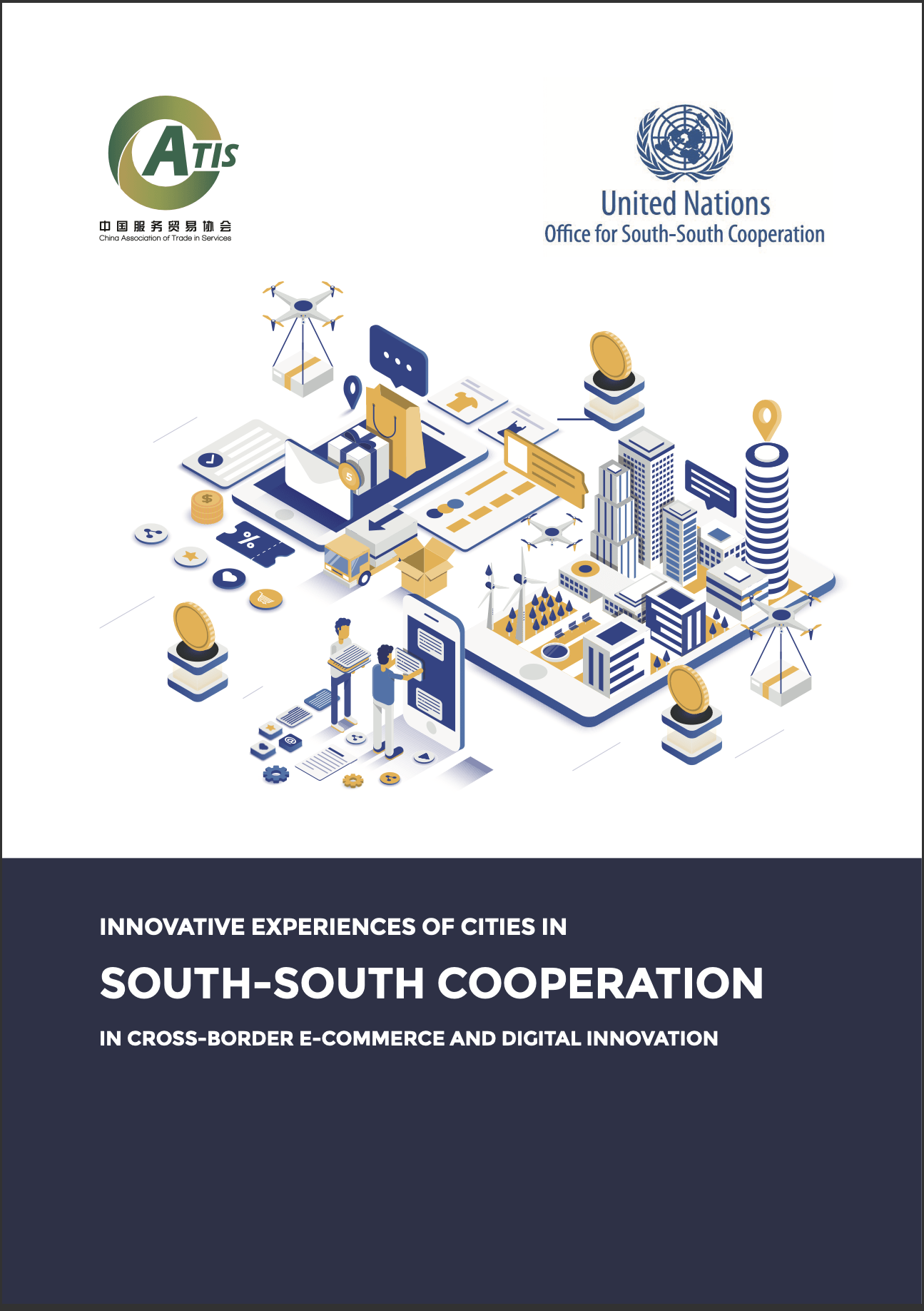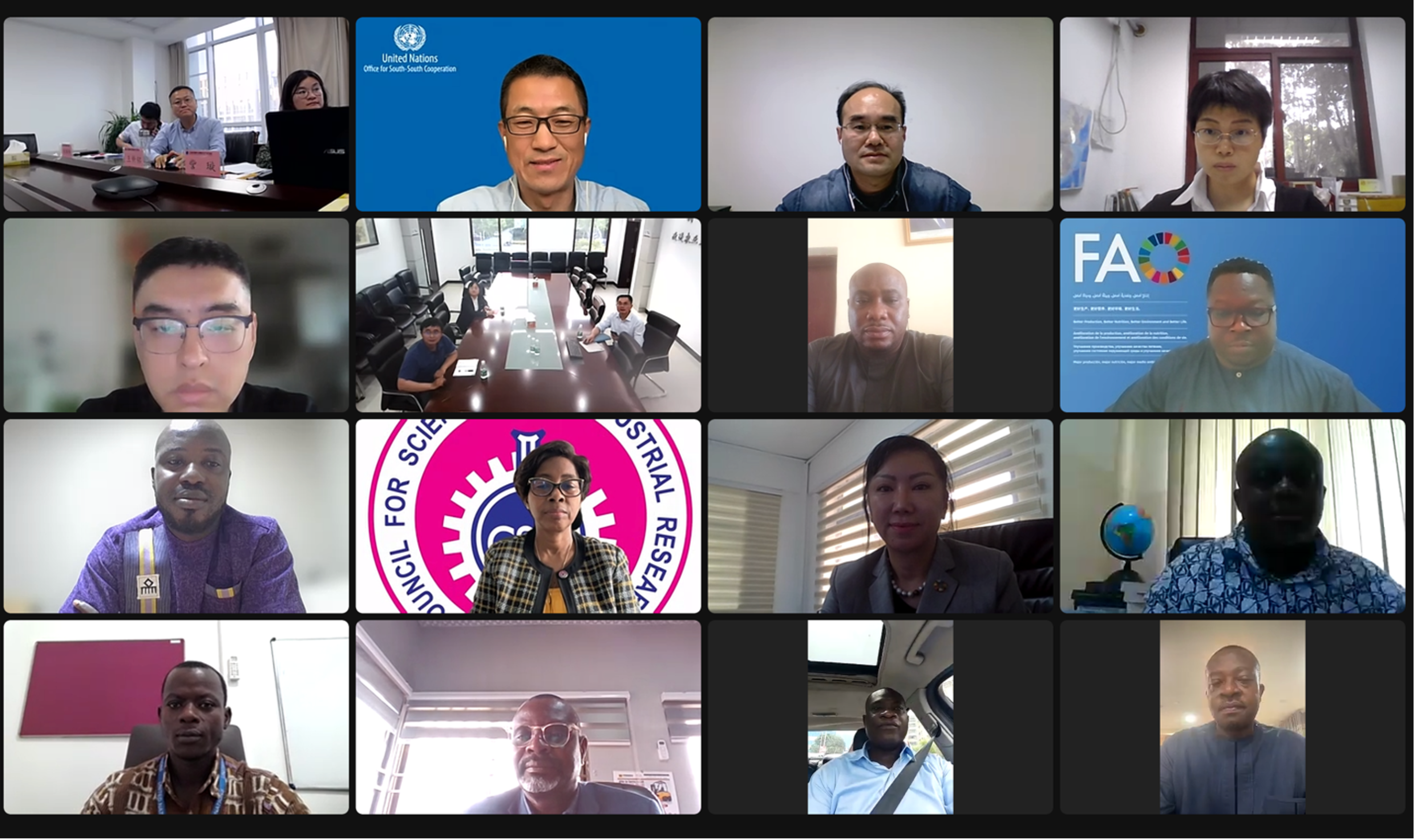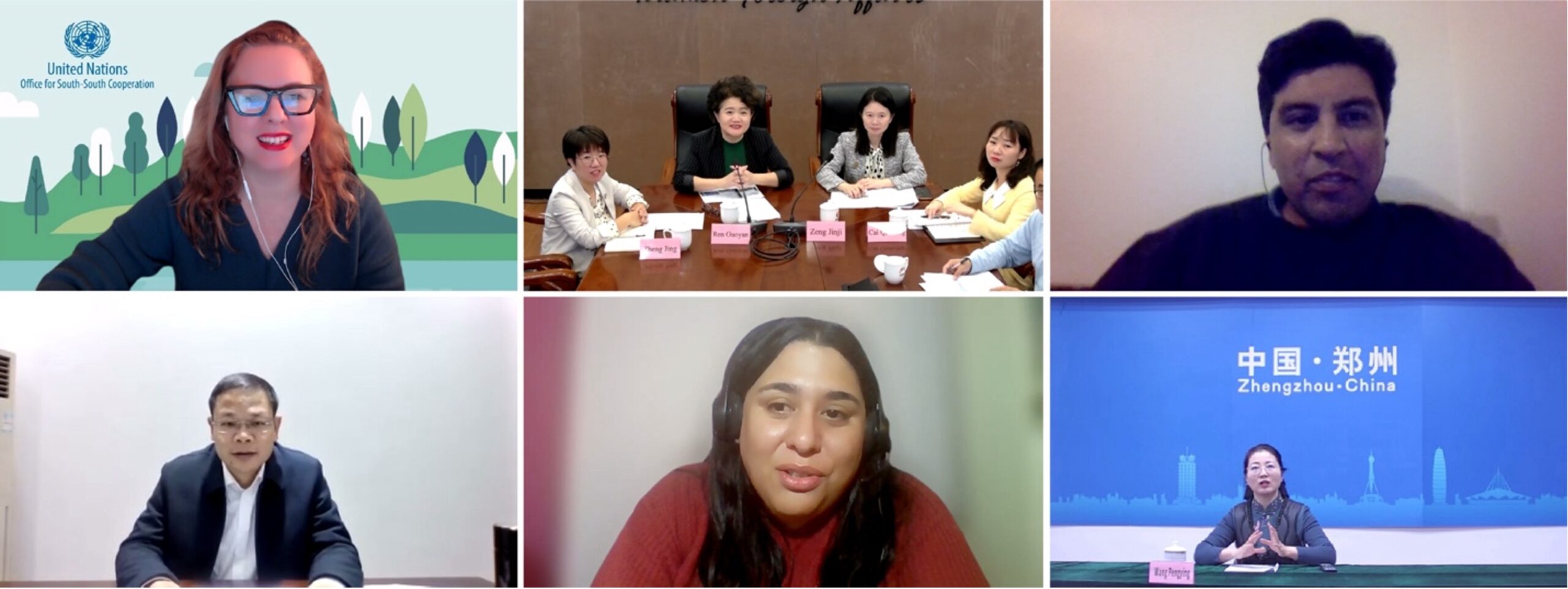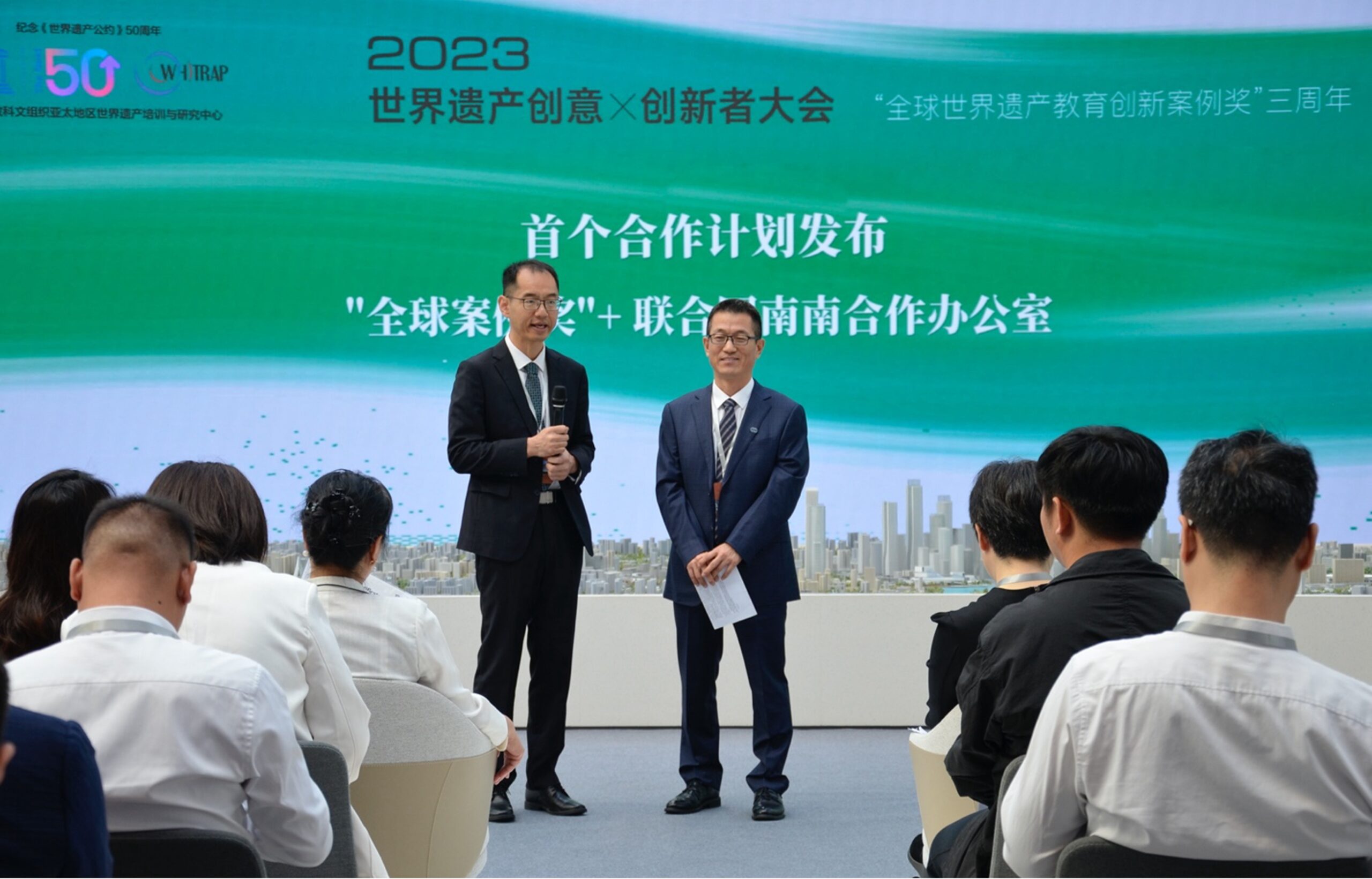
Cities Project: Maritime-Continental Silk Road Cities for Sustainable Development
Project Scope and Focus

 By the end of 2020, over 200 cities and institutions from Africa, Arab States, Asia and Pacific and the Europe and the CIS regions actively participated in Cities Project network activities, and their development solutions and innovative experiences have been showcased. Over 40 knowledge sharing and capacity development initiatives and webinars were organized in 2020, which received over 3.3 million live views globally, and connected over 1000 cities from across 140+ countries.
By the end of 2020, over 200 cities and institutions from Africa, Arab States, Asia and Pacific and the Europe and the CIS regions actively participated in Cities Project network activities, and their development solutions and innovative experiences have been showcased. Over 40 knowledge sharing and capacity development initiatives and webinars were organized in 2020, which received over 3.3 million live views globally, and connected over 1000 cities from across 140+ countries.
The Cities Project worked with more than 80 development partners, including close to 20 UN entities, namely, United Nations Development Programme (UNDP), United Nations Industrial Development Organization (UNIDO), United Nations World Tourism Organization (UNWTO), United Nations Capital Development Fund (UNCDF), United Nations Office for Disaster Risk Reduction (UNDRR), World Health Organization (WHO), United Nations Educational, Scientific and Cultural Organization (UNESCO), International Trade Center (ITC), World Food Programme (WFP), United Nations Population Fund (UNFPA), United Nations Economic Commission for Africa (UNECA), International Telecommunication Union (ITU), UN- Habitat, and UNRCO in many countries, as well as many other institutional partners from within and beyond the United Nations system are directly or indirectly support the Cities Project implementation.
Project Value and Focus Areas


Policy Guidance
Report of the Secretary-General: Role of South-South cooperation and the implementation of the 2030 Agenda for Sustainable Development: Challenges and opportunities(A/73/383) pointed out that the number of actors in South-South and triangular cooperation have expanded, including subnational entities such as municipal and provincial governments, as important stakeholder in development cooperation that can be instrumental in scaling up the implementation of the 2030 Agenda through South-South and triangular cooperation efforts.
The United Nations General Assembly, in its resolution (A/RES/72/237) on South-South cooperation, also welcomed the New Urban Agenda adopted at the United Nations Conference on Housing and Sustainable Urban Development (Habitat III), and urged the United Nations to continue to support South-South cooperation projects that contribute to the implementation of the New Urban Agenda.
The outcome document of the second High-level United Nations Conference on South-South Cooperation (BAPA+40)(A/73/291) highlighted the importance to promote South-South cooperation at sub-national level. It firstly encouraged Member States and all relevant stakeholders, as appropriate, to establish or strengthen, coordinated mechanisms at sub-national level to leverage the expertise and other resources of multi-stakeholder partnerships to support South-South cooperation and triangular cooperation initiatives towards the attainment of the 2030 Agenda for Sustainable Development. It also encourages developing countries to enhance the capacity of sub-national coordination mechanisms, and to further explore new sources and instruments of innovative financing for funding at subnational level.

South-South Cities Clusters
South-South Cities Clusters are digital platforms under South-South Galaxy that bring cities together to interact and exchange with UN specialized agencies, experts and partners, in order to facilitate city-to-city horizontal cooperation and exchange.
In response to cities’ thematic interests, seven South-South Cities Clusters were created to promote the exchange of knowledge, research and experiences on: 1) COVID-19 Response, Recovery & Public Health; 2) Sustainable Tourism, Heritage Protection & Creative Economy; 3) Sustainable Agriculture Value Chain development; 4) E-Commerce, Digitization & Smart Cities; 5) Disaster Risk Reduction, Mitigation and Resilient Cities; 6) Sustainable Transport & Air Quality; and 7) Waste Management, Green Cities & Renewable Energy. Learn More

Also available on BiliBili.
Cities Project 2020 Highlights
The COVID-19 pandemic has brought about important changes and exposed several points of fragility in the to the international system. It has also showed the importance of South-South solidarity when responding to common challenges. Throughout 2020, the Cities Project has worked to continue promoting city-to-city collaboration in the Global South. It has organized over 40 webinars, launched several publications and knowledge products, and mobilized donations of masks and other PPE from Southern partners, to a number of cities of the global South. These and other accomplishments have been compiled in the Cities Project 2020 Highlights, which you can access here.
Recent Knowledge Products

Experiences and Practices on Inclusive Sustainable Tourism in Cities and Localities in the Context of South-South and Triangular Cooperation (UNOSSC, UNESCO, 2023)
[vc_column column_padding="no-extra-padding"...

Training Booklet: Transitioning to Complex Risk Management and Resilient Urban Futures – Harnessing South-South Cooperation and Learning from COVID-19
[vc_column column_padding="no-extra-padding"...

Innovative Experiences of Cities in South-South Cooperation in Cross-border E-commerce and Digital Innovation
[vc_column column_padding="no-extra-padding"...

Spotlighting: Cities and Other Sub-National COVID-19 Responses for SSTC (UNOSSC-UNDRR, 2022)
[vc_column column_padding="no-extra-padding"...
Recent News & Pilot Projects

UNOSSC Facilitates Exchange on Special Economic Zones and Industrial Parks between Ghana and China
On 13 May 2024, the Cities Project of the United Nations Office for South-South Cooperation (UNOSSC) hosted an online exchange on Special Economic Zones (SEZ) and industrial parks between China and Ghana. The event brought together over 25 representatives from UN...

UNOSSC Facilitates South-South Exchange on Urban Mobility between Cities in Argentina, Chile and China
On 12 December 2023, the Cities Project of the United Nations Office for South-South Cooperation (UNOSSC) held an online exchange on innovative urban mobility, fostering collaboration among officials from Buenos Aires (Argentina), Santiago (Chile), and cities in...

UNOSSC Cities Project Facilitates Collaboration Between Gurbhakot, Nepal, and Nanjing, China on Agro-industrial Park Planning
[vc_column column_padding="no-extra-padding"...

6th China International Import Expo: An Important Platform to Promote South-South Trade
[vc_column column_padding="no-extra-padding"...

UNOSSC Cities Project and WHITRAP strengthen collaboration at 2023 World Heritage Creative Innovator Forum
From 2 to 3 November, representatives of the United Nations Office for South-South Cooperation (UNOSSC) Cities Project participated in the 2023 World Heritage Creative Innovator Forum in Guangzhou, China. The forum, hosted by World Heritage Institute of Training and...

UNOSSC Director visited NDRCC to Strengthen Collaboration on Disaster Risk Reduction through South-South and Triangular Cooperation
[vc_column column_padding="no-extra-padding"...

Local Representatives and Technical Experts from Lebanon and China Participate in Training on Disaster Risk Reduction
[vc_column column_padding="no-extra-padding"...

City-to-City Experience and Technology Exchange Workshop between Hangzhou and Santiago
As part of the pilot project on sustainable transportation, and to strengthen city-to-city technical exchanges and partnership-building, Mr. Álvaro Jordán Rifo, Specialist from the Department of Mobility and Transport of the Metropolitan Regional Government, and Mr....
